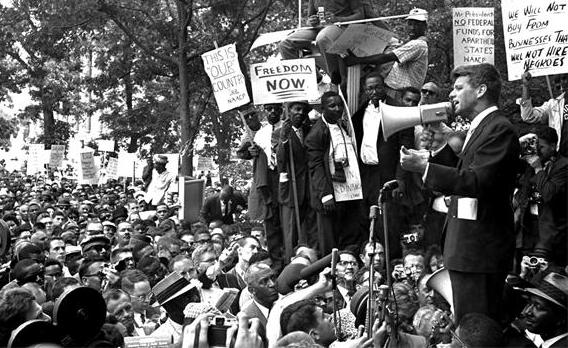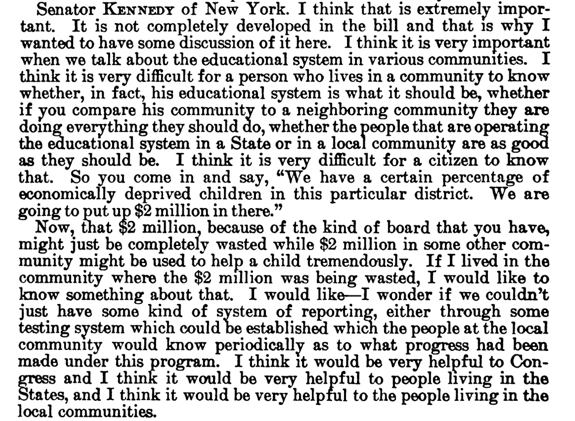
I distinctly remember waking up for school the morning of June 6th, 1968 and finding out that Robert F. Kennedy had been shot in Los Angeles just after midnight. My father was a Republican and my mother a Democrat, but they were both shocked and saddened by the news. I don’t remember a whole lot else. I was young and it was a very turbulent time in America. Two days later, James Earl Ray would be arrested in London for the murder of Martin Luther King Jr. after being on the run for two months across three different countries and two continents.
You’ve likely read a lot about RFK in recent days in the lead up to this, the 50th anniversary of his death. But what you may not know is that, as the Senator from New York, he was not only one of the authors of the original Elementary and Secondary Education Act of 1965 but also one of the earliest progressive supporters of robust accountability policies in education tied to student outcomes, including test scores.
At a 1965 hearing when the issue of accountability came up, RFK had this to say1:

Herein, RFK capsulized the issues that would become central over the course of each ESEA reauthorization between passage of the original law later that year all the way up to the debates occurring now on implementation of the Every Student Succeeds Act of 2015. His emphasis on tying additional resources to sound policies that improve student outcomes has been echoed by progressives ever since including his brother, Senator Ted Kennedy and Congressman George Miller who, along with President George W. Bush, put landmark accountability policies in ESEA under the No Child Left Behind Act of 2002. “Resources and reform” also framed the education policies of our past two Democratic Presidents, Bill Clinton and Barack Obama.
It’s safe to assume that RFK would be pleased to see that, 50 years later, the civil rights groups he worked so closely with on so many issues have gotten solidly behind the approach to assessments and accountability in education that he envisioned. The work isn’t over. But progressives who support these policies should know that they have a long history involving some of our nation’s most important leaders.
—————-